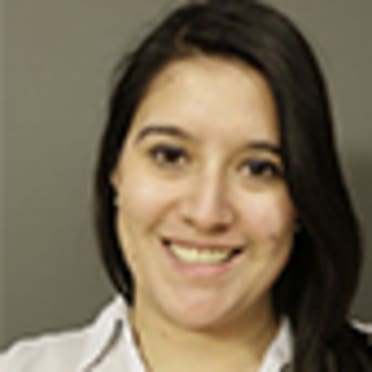‘Qué lo qué, papi’: Giants bridge cultural gaps with Spanish classes
SCOTTSDALE, Ariz. -- Since joining the Giants in 2016, manager of education and cultural development Laura Núñez has been in charge of overseeing the organization’s academic efforts, most notably English classes for international players and life skills courses meant to educate young prospects on topics ranging from personal finance to domestic violence prevention.
This year, at the request of players, Núñez decided to expand her group’s offerings to include Spanish classes for English speakers. The Giants made enrollment voluntary, but they were thrilled when several Minor Leaguers decided to sign up, including shortstop Ryan Reckley, first baseman Garrett Frechette, outfielder Vaun Brown, catcher Max Wright and right-handers Mason Black, Wil Jensen and Solomon Bates.
“The bell was sounding, so I was like, ‘OK, let’s see who has interest,’” Núñez said. “We threw it out there, and these guys popped up. The only thing we asked was that they would commit to it during the season. They signed up, and it’s been a total hit since.”
The classes are taught by Jen Bath, a former high school Spanish teacher who was hired by the Giants full-time earlier this year. Beginning in February, Bath and her students started meeting once or twice a week for 45-minute lessons over Zoom, though they’re hoping to transition to in-person learning later this year.
“They really have knocked my socks off,” Bath said. “They're so impressionable. The coolest thing about it is they're really excited to learn, and they're very curious. They want to know why this word is pronounced this way or why you structure the sentence this way. I would say every single one of them is top notch. They're killing it.”
Bath tries to make the classes more conversation-based and applicable to the players’ professional lives, which she hopes will ultimately help bridge cultural gaps between domestic and international prospects, the majority of whom hail from Latin American countries.
“I think it’s really cool,” said Giants rookie reliever Kervin Castro, a native of Maracay, Venezuela. “There’s going to be more communication between the American and Latino players, and it’s going to bring everyone closer. I think it’s going to be another step toward building that team unity.”
Frechette, a 2019 fifth-round Draft pick, grew up in the San Diego area, which has a sizable Spanish-speaking population since it sits on the border between the United States and Mexico. He took Spanish classes in high school, but he’s learning more now that he can practice in a more immersive environment.
“I took Spanish I and Spanish II and kind of learned the basics, the conjugations and all that, but then after that, it dies off,” Frechette said. “But after getting drafted and being around these guys and just talking to them, I pick up on things. That’s when I was like, you know what, I really want to learn and be able to speak it. Because a lot of the times they’re talking about me, and I don’t know what they’re saying.”
Earlier this spring, Bath and Núñez brought in Dominican infielders Luis Toribio and Ghordy Santos to help the students practice Spanish greetings, creating a moment of cultural exchange between the players.
Frechette’s favorite phrase?
“Qué lo qué, papi,” he said, referring to Dominican slang that roughly translates to “What’s up, man?”
Frechette tries to learn a new word every day and said he was recently complimented on his Spanish by Cuban third baseman Yorlis Rodríguez.
“I was talking to him in the outfield,” Frechette said. “We were shagging, and he was like, ‘Wow, you have the best Spanish of all the gringos.’”
Frechette and Núñez also said Black, a 2021 third-round Draft pick, is one of the most advanced Spanish speakers in the class. Black said he had a solid foundation coming in since he took Spanish classes in high school and college, but he jumped at the chance to continue studying the language with the Giants. His favorite teammate to practice with is Venezuelan shortstop Aeverson Arteaga, who was his roommate last year.
“We have a lot of time on our hands after finishing at the field, so I think it’s something to give a little mental sweat,” Black said. “And then obviously like 50 to 60 percent of your teammates are Latin players. I just want to be able to speak with them in their own tongue and maybe help their English in the process.”
Núñez said the Spanish classes have given players a greater appreciation for the lengths international players go to learn English, which is taught every day following games and workouts.
“I think the guys in Spanish class were surprised that the international guys are included in English classes on a daily basis,” Núñez said. “They were kind of shocked when they saw the schedule. They were like, ‘They do that for us? They do that to speak English?’ And we’re like, ‘Yeah!’”
Núñez said she doesn’t foresee the Spanish classes becoming compulsory for English-speaking players, but she believes the current group is setting a good example for future generations to follow.
“I think they don’t realize the impact of what it is that they’re doing and what precedent that sets for different languages and people within this organization,” Núñez said. “The fact that they’re trailblazing that, the fact that they’re taking the initiative to become better humans and teammates and be able to reach out to the guys that have limitations with language, I think it’s really awesome to see that.”
